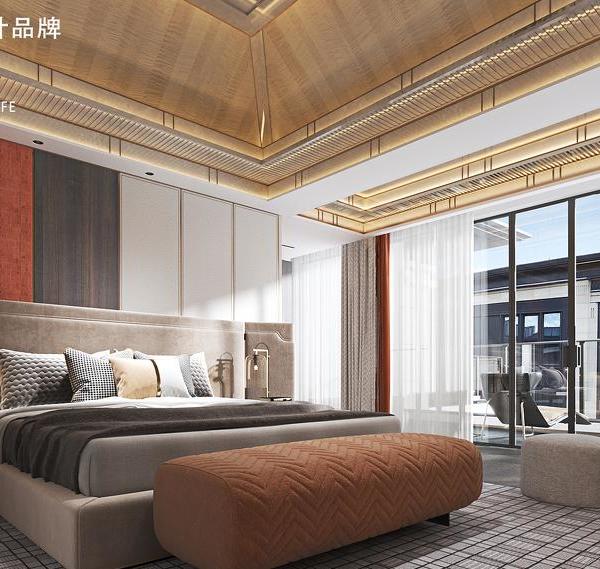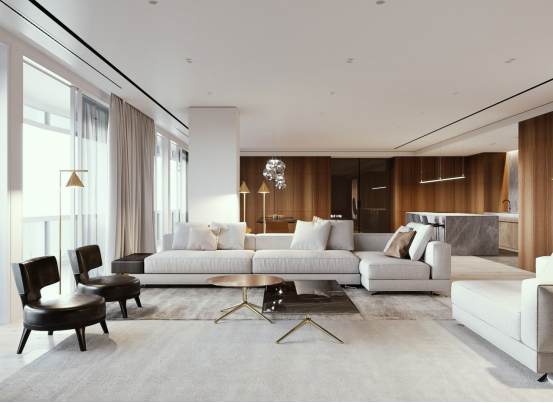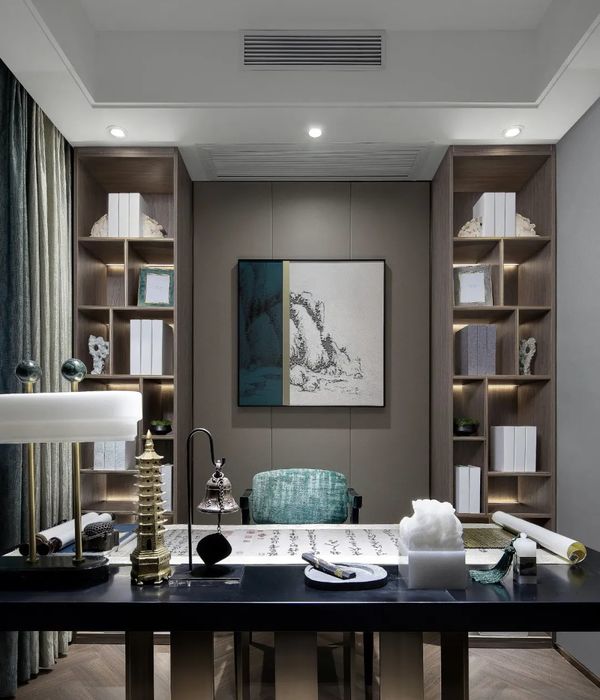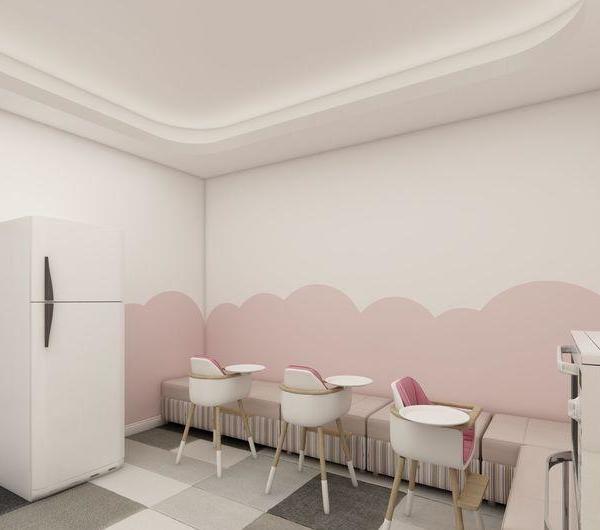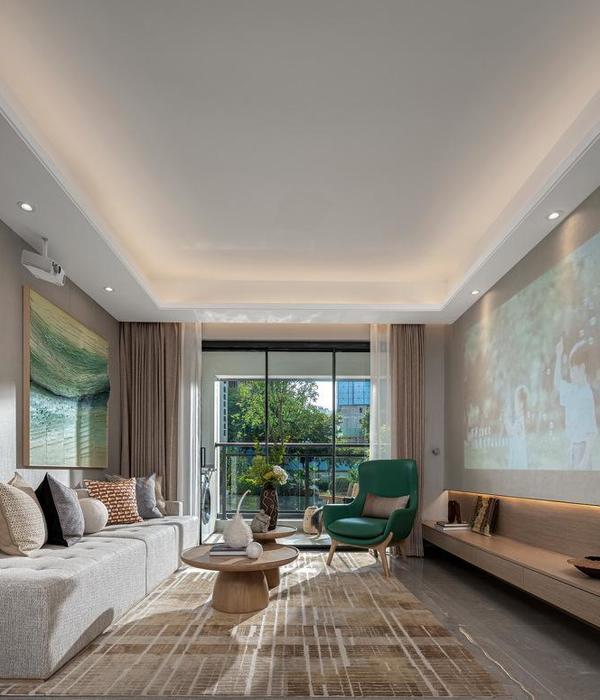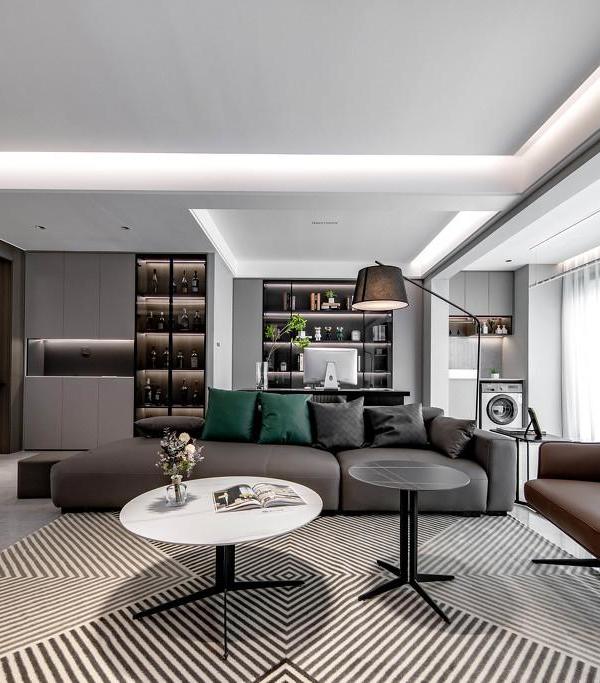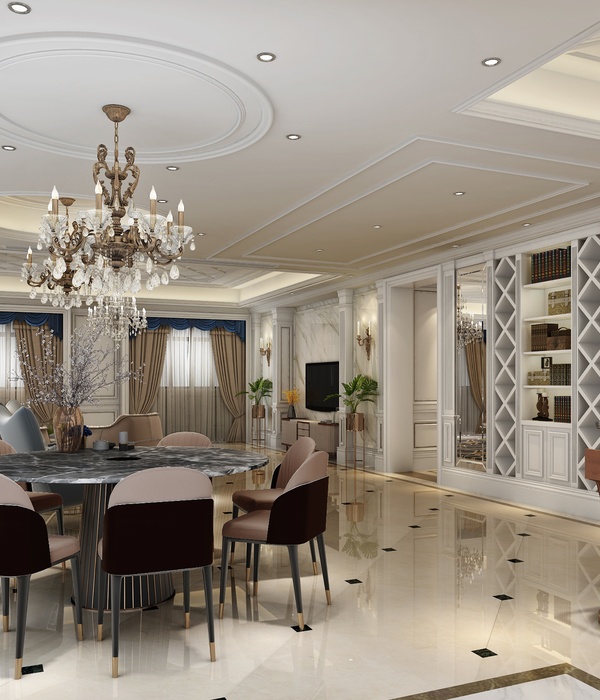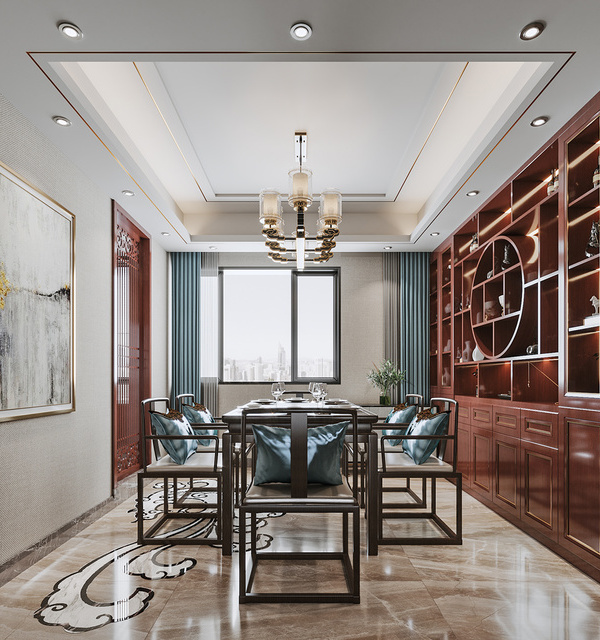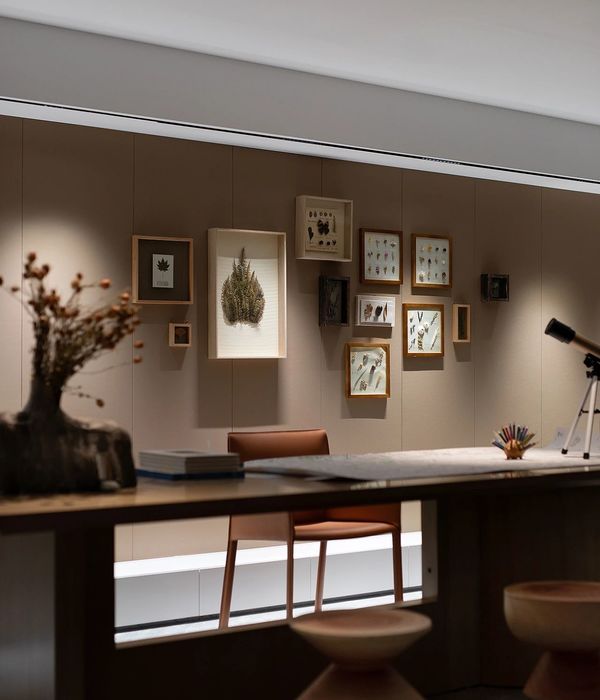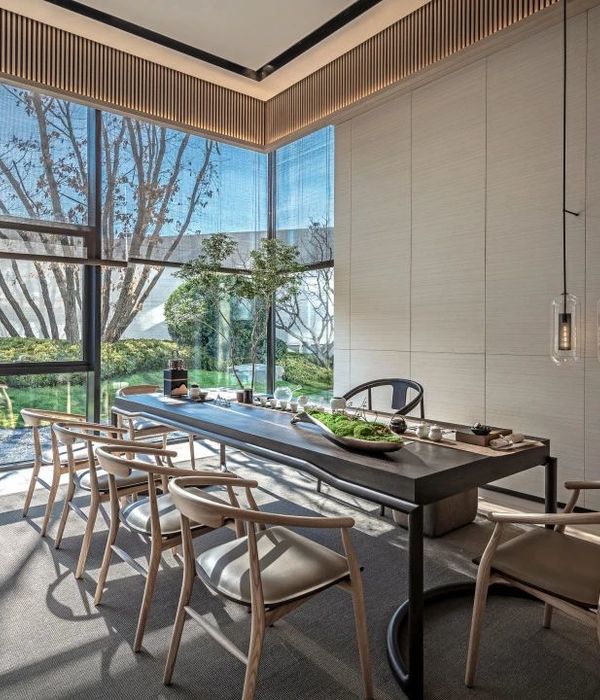- 项目名称:Ecotone
- 地点:土耳其伊斯坦布尔
- 年份:2020年
- 面积:1830平方米
- 建筑师:Alper Derinboğaz
- 建筑团队:Egemen Onur Kaya,Ekin Cem Tümbek,Pınar Kömürcü,Emmy Bacharach,Berkay Yücebaş,Tolga Halil Akşahin,Cansu Gösterişli,Han Seki
- 结构工程:Parlar Engineering
Salon Architects:该办公建筑作为校园和工厂之间的过渡空间,构成了伊斯坦布尔伊尔兹技术大学伊尔兹技术园区的一部分。这个位于纺织学院和教学楼建筑之间,内含教育空间、灵活的合作办公空间和会议空间的综合性项目,作为校园的一部分,旨在激发创新和新技术的发展。
Salon Architects:Ecotone occupies a transitional space between education and industry, forming part of the Yıldız Teknopark campus of Yıldız Technical University in Istanbul. Located between two buildings, the textile academy and a teaching block, its programme encompasses education, flexible co-working space, and meeting areas. The hybrid space is part of a campus designed with the intention to spark innovation and the development of new technologies.
在全球冠状病毒大流行期间,Ecotone将外部区域、植物和受保护但开放的办公区域整合在一起,成为了新的抗疫和可持续办公建筑的典范。该项目旨在开发出一个更好的办公环境,优先考虑个人和团队工作的卫生和安全区域。建筑中的露天区域,可根据天气作为非正式的会议区域,避免形成完全封闭的群体空间。除了这些室外空间,不仅植物为建筑内部带来了更多的绿色,不依赖于机械系统的良好自然通风也为整个室内空间提供了清新的空气。建筑整体采用被动式地热供暖和冷却,而且用于排水和冷却的水都通过管状柱引导流进地面。
Evolving during the global coronavirus pandemic, Ecotone proposes a new exemplar for pandemic resistant and sustainable office architecture, with the integration of outside areas, planting and protected yet fluid office zones. The project aims to develop a better office environment that prioritises hygiene and safe areas for individual and group working. Open air fingers in the plan layout provide areas that, weather-dependent, can be used as informal meeting zones, avoiding closed group spaces. As well as these outdoor rooms, planting brings green inside the building, and natural ventilation provides clear air flows throughout the interior spaces, without relying on mechanical systems. The building employs passive geothermal heating and cooling, while water both for drainage and cooling passes through the tubular columns from sky to earth.
▼建筑通风系统 Ventilation Strategy
该建筑旨在利用简单的结构,在屋顶和楼板之间创造一种新的基本关系。考虑到项目场地位于强风和地震危险区,建筑模仿Laugier的原始小屋,仅由一组支撑着屋顶的简单柱型结构构成。因场地条件不允许开挖地基,所以该结构还必须是自支撑结构,因此,为了实现这一点,我们扩大了地面和屋顶连接处的柱子,从而满足其侧向荷载需求。
The building aims to achieve, through a simple structure, a new fundamental relationship between roof and slab. Echoing Laugier’s Primitive Hut, the design composes a simple column arrangement with roof placed on top, whilst considering its location in a high wind and earthquake risk zone. As the site doesn’t allow for foundations, the structure must be self supporting; to achieve this the delicate columns expand at their ground and roof connections to support side loads.
▼建筑结构设计 Structural Strategy
该结构以钢制材料为主框架,木质材料为子框架,并利用钢制连接器在上面包裹层压木材。管状柱采用的创新制造技术,类似于油箱设计中使用的技术,也许是第一次在建筑中使用。这些细长的柱子,随着校园内的地形高度而变化,仿佛石笋和钟乳石,渗透到屋顶,屋顶也似乎将天空融入了地面。
The structure uses a steel mainframe and timber sub-frames, clad in laminated timber with steel connectors. The tubular columns employ an innovative fabrication technology similar to that used in petrol tank design, perhaps used for the first time in architecture. The slender columns, reminiscent of stalagmites or stalactites, seep into the roof, which appears to melt from sky to ground as its height varies across the campus.
▼场地平面 Site Plan
▼建筑首层平面 Ground Floor Plan
▼建筑纵剖面图 Longitudinal Section
项目名称:Ecotone
地点:土耳其伊斯坦布尔
年份:2020年
类型:办公室
面积:1830平方米
建筑师:Alper Derinboğaz
建筑团队:Egemen Onur Kaya, Ekin Cem Tümbek, Pınar Kömürcü, Emmy Bacharach, Berkay Yücebaş, Tolga Halil Akşahin, Cansu Gösterişli, Han Seki
结构工程:Parlar Engineering
机械工程:Çilingiroğlu Engineering
电气工程:Sanayi Engineering
可持续发展顾问:Dr. Pınar Sipahi
结构性同行评审:Prof. Peter Bauer, Werkraum
Project name: Ecotone
Location: Istanbul, Turkey
Dates: 2020
Program: Office
Area: 1830 sqm
Architect: Alper Derinboğaz
Architecture Team: Egemen Onur Kaya, Ekin Cem Tümbek, Pınar Kömürcü, Emmy Bacharach, Berkay Yücebaş, Tolga Halil Akşahin, Cansu Gösterişli, Han Seki
Structural Engineering: Parlar Engineering
Mechanical Engineering: Çilingiroğlu Engineering
Electrical Engineering: Sanayi Engineering
Sustainability Consultant: Dr. Pınar Sipahi
Structural Peer Review: Prof. Peter Bauer, Werkraum
{{item.text_origin}}

